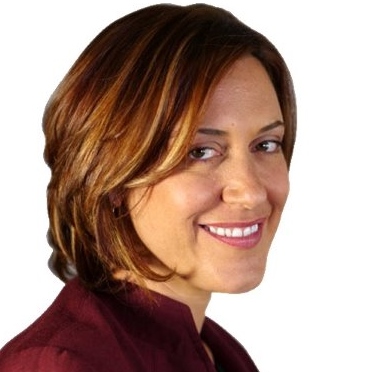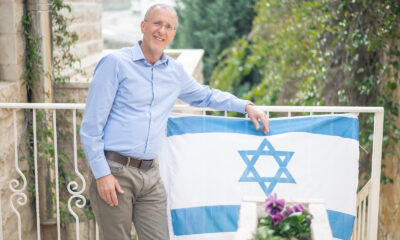
OpEds

Are there similarities between Russia and Israel?
I know I’m sticking my neck out by writing this and I know a lot of readers will disagree. So let me be quite clear at the outset. I’m not comparing Russia’s actions in the Ukraine with Israel’s actions against Palestinians. I strongly believe these are incomparable for a number of reasons.
First, the Israeli-Palestinian conflict is a dispute over territory by two peoples who both have historic claims and connections to it. Russian President Vladimir Putin, on the other hand, justifies his military operation in Ukraine as a “last resort” after warning the North Atlantic Treaty Organisation (Nato) for years not to encroach on his doorstep.
For Putin, Ukraine becoming a member of Nato is a red line – just like, he argues, it was for the United States when the Soviet Union wanted to install nuclear-armed missiles in Cuba, less than 150km from its borders in 1962.
Putin also claims he’s coming to the rescue of pro-Russian Ukrainians who have been fighting the Ukrainian military in the east of the country since 2014 in an effort to break away and declare independence from Ukraine.
Here, too, Putin calls out the West for its double standards in supporting the province of Kosovo’s breakaway and subsequent declaration of independence from Serbia in 2008, that went against the wishes of Belgrade, backed by Moscow.
The Russian-Ukrainian and Israeli-Palestinian conflicts are very different. Israel’s enemies are groups like Hamas and Hezbollah, which are recognised as terror organisations and listed as such by many countries in the world; a far cry from the Ukrainian forces fighting Russian soldiers.
Although, as an aside, it should be noted that there are tens of thousands of Azov and Aidar battalion members fighting with the Ukrainian army. These are far-right militia with connections to neo-Nazism who have called in the past on Ukraine to get rid of Jews and other “inferior races”.
I understand that many people reflexively sympathise with the underdog. Russia is seen as the stronger side in this war, like Israel vis-à-vis the Palestinians, but that doesn’t mean the stronger side is automatically in the wrong.
So, what am I sticking my neck out to say? The world is quick to condemn Russia’s actions without understanding the context of what’s happening. This is the similarity I draw with Israel. Again, I’m not defending Russia’s actions, but I’m questioning the lack of effort countries and people have made to try to understand how Putin, who is still supported by many in Russia, got to this point.
I’m suggesting that the international community a) chooses which conflicts it wishes to draw attention to and b) is quick to make up its mind about who it supports often without understanding the very complicated historical context.
The charge of double-standards against the West is nothing new. Two months ago, I was in Ethiopia reporting from the Tigray region about the conflict there that started in 2020 and, to date, has caused thousands of casualties and displaced an estimated two million people. There was nowhere near the same kind of media attention or international outcry that there is now over Russia’s actions in Ukraine.
In Yemen, millions are frightened and starving in a war that started eight years ago and triggered what, until now at least, humanitarian organisations dubbed “the world’s worst humanitarian crisis”. As many as a quarter of a million people have been ruthlessly killed and yet this story rarely – if ever – makes the front pages.
I’m not saying the horrific violence in Ukraine shouldn’t be reported on. Of course, it should. I condemn all acts of aggression, massive human displacement and loss of life, and any media attention that can hopefully bring about the end to such conflicts is to be applauded.
However, what’s glaringly noticeable is how many in the world are quick to condemn Israel and Russia and turn a blind eye to other violence. For example, Washington supports the Saudi effort in the war in Yemen against the Houthi rebels. Saudi warplanes, backed by the US, have repeatedly carpet-bombed the country, fuelling the humanitarian crisis there. Where’s the media attention? Where’s the outcry against not only Saudi Arabia but, more importantly, the US?
Russians are divided over this war, but many I talk to agree that there’s a certain Russophobia that was so quick to come to the fore when Putin’s army invaded Ukraine and it seems like it was there all the time.
Yes, the arguments against Russia invading a sovereign country are valid and I’m not making light of them. I’m just noting that in 25 years of being a journalist and covering conflict, the only time I receive hate mail is when I report stories that present the Russian or Israeli point –of view in a conflict.
It often does seem, to me at least, that people are so quick to criticise every action of the Israeli army without even giving it the benefit of the doubt that there is a valid case to be made for anti-Israel sentiment equalling antisemitism. Could the same be said of Russia?
When the Cold War ended in December 1989, Russians wanted to be part of the Western world, “but the West never wanted us”, is a popular refrain I hear.
“And now, with the quick condemnation of what we are doing in Ukraine, without actually being open to what led to it and why we are doing it, smacks of Russiophobia – and we’re not surprised,” a Russian colleague told me. “No one wants to hear our side of the story. Reports of Russian soldiers raping women? Believe me, there are enough women in Russia. It’s nonsense. No one’s even open to the idea that maybe there are thugs fighting on the Ukrainian side using civilians as human shields. There’s just a raw hatred towards us that dates back long before this war.”
It reminds me of a sad joke I was once told. The worst identity in the world is to be a Russian Jew – you are hated twice.
Enter Israel into the fray.
With Jewish communities in Ukraine and Russia, Jerusalem finds itself wedged between the two countries during this crisis. Ukrainian President Volodymyr Zelenskyy asked Israeli Prime Minister Naftali Bennett on 25 February to open a diplomatic channel with Moscow.
Since then, Bennett has spoken numerous times to Zelenskyy and Putin over the phone, and this past Saturday, broke his observance of Shabbat to fly into Moscow for a meeting at the Kremlin.
There’s a lot of excitement in Israel and the Jewish world about the possible mediator role Israel can play in this conflict. I don’t share in that excitement. Of course, success in getting the sides to compromise would elevate Bennett to an international statesman and boost Israel’s standing. However, Bennett is largely untested on the world stage and has now positioned Israel in an uncomfortable middle ground.
Critics of Putin even suggest that the Russian president might be involving Bennett as a means to buy time for tactical regrouping and legitimacy; the latter achieved by sharing the stage with a democratically elected leader.
Israel needs Russia more than Russia needs Israel, particularly regarding the Russian military presence in Syria. Israel’s continued operations across her northern border rely on Moscow not shooting down Israeli jets when they attack Iranian and Syrian military targets there. Any wrong move by Bennett could sour relations with Russia.
Mediation efforts by France and Turkey – much bigger players internationally – have so far failed to avert the conflict. Bennett is taking a huge risk, not only for himself as a politician but for the state of Israel and its security.
- Paula Slier is the Middle East bureau chief of RT, the founder and chief executive of Newshound Media International and the inaugural winner of the Europcar Women in Leadership Award of the Absa Jewish Achiever Awards.











yitzchak
March 12, 2022 at 2:30 pm
Paula it appears that you are underinformed about the war against the Ukrainians
Russians are not being exposed to the plurality of news sources which you so admirably hold up.
While we in the west can see exactly what’s going on with all our sources.
One thing is certain, the Russian propaganda machine won’t wash on us even though it (includingRT) is doing a wonderful hatchet job on the truth(mostly by not reporting the carnage and exagerating fascist vigilantes).
Everybody on the left including dubious SA spokespeople blame NATO encroachment. But nowhere have I seen any western european country threaten the Russians.Now we understand why those countries have sought NATO membership.Let’s also not forget that previous Eastern European countries didn’t voluntarily seek Warsaw Pact partnership)
The other specious argument is that Russia has supported independence,decolonization,national liberation.
in the past, but the sovereign Ukrainian state doesn’t count,and is now bound to turn the clock back to czarist times of serfdom to feed the Russian totalitarian state.
Sharon Suttner
March 14, 2022 at 3:10 pm
Lots of good accurate information given in this article
The devil is always in the detail
The public often doesn’t know the details
Sydney Kaye
March 17, 2022 at 12:52 pm
It is not complicated. Whatever the so called complaints ( and they are probably invented as an excuse) nothing justifies invasion,when there is no threat, and mass murder. The behavior of the Ukrainians to the Jews is a red herring, since anti semitism was all over Europe with Russia being the worst. According to that Israel would be justified in bombing Germany. It’s a silly argument.
Ursula Rembach
March 18, 2022 at 7:16 am
Well said. Interesting to get a view from “the other side”.
Dnz
March 26, 2022 at 7:30 am
1) Russia and Israel both have ruthless, murderous intelligence agencies carrying out “wet-work” in foreign countries. The Mossad and the FSB (formerly KGB) are both notoriously adept at assassinations, staged provocations and other wicked chicanery. In 2006, the FSB used polonium to poison exiled Russian dissident Alexander Litvinenko in London. In 2010, the Mossad crudely assassinated an operative of Hamas in a Dubai hotel room. The two agencies have carried out dozens of other assassinations of their political enemies over the years. In 2014 a Russian minister encouraged the FSB to “follow Mossad examples” by assassinating the leaders of the Ukrainian nationalist Right Sector group.
2) Both countries employ an online “troll army” of paid propagandists to forward their states’ lies and deceit. Russian and Israeli online trolls are remarkably similar in how they operate and behave. Since they have no valid arguments to defend the indefensible policies of their governments, they exclusively resort to personal attacks and trolling against critics.
3) Both nations label all criticism and opposition as an irrational “phobia.” In Israel’s case, they designate all criticism and opposition to Israel as a manifestation of “anti-Semitism.” The Putin regime and its supporters put down their critics with accusations of “Russophobia.” Putin even recently compared critics of Russia to anti-Semites.
4) Both regimes utilize staged propaganda to “humanize” their cutthroat leaders. You will often see Putin and Netanyahu or Bennet photographed or filmed doing recreational activities (singing, dancing, playing sports, etc.). They will also stage photo-ops with small children or animals to make these killers appear endearing.
5) Both countries say that acts of violence against them are unprovoked and driven by irrational hatred, while justifying their own violence and aggression against others as necessary acts of “self-defence.”
6) Both regimes are willing to sacrifice the lives of their own people to advance the agendas of their elite.